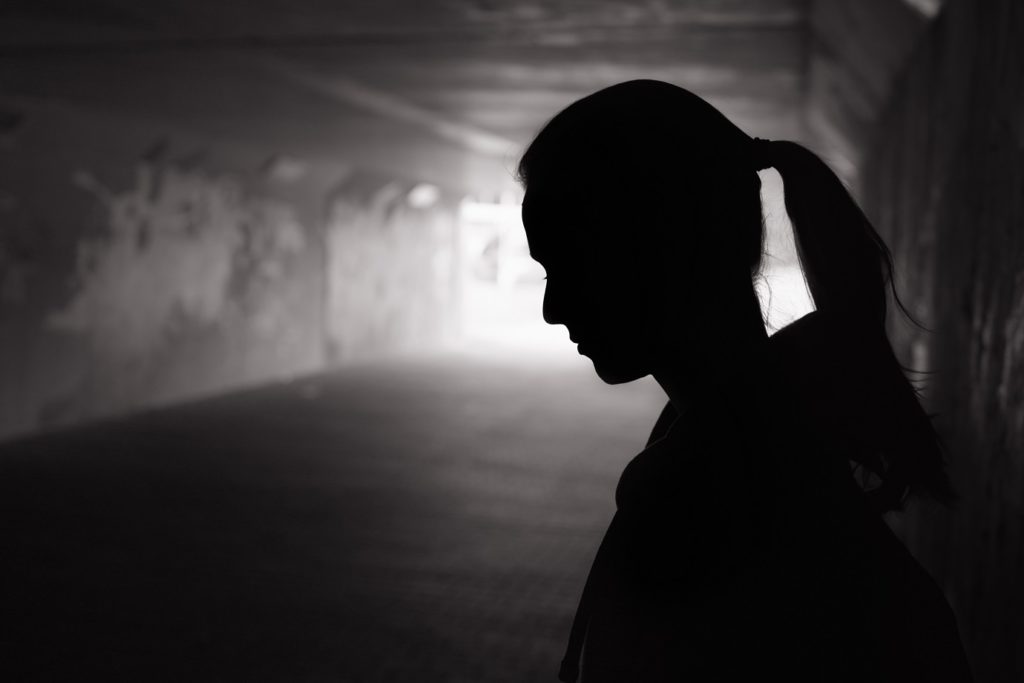Australia has a long and undistinguished history of ‘blaming the victim,’ in particular, women, but in 2021 some brave new voices came to the fore – think Grace Tame, Brittany Higgins, Chanel Contos and Saxon Mullins. These women weren’t ashamed of what they had suffered. They want justice and have not been afraid to speak out to demand it, for themselves and all victims of sexual violence. We salute them.
This Anti-Poverty Week some new voices of poverty also spoke out. Paulene in Brisbane, a proud Indigenous woman bringing up her daughter on her own. “Nine times out of 10, by the time we get to the end of the week, I’m overdrawn by anywhere between $20 to $50 because the money just isn’t there,” Paulene said. Paulene is one of 300,000 female sole parents bringing up children on income security payments well below the poverty line.
We also heard from Angela in Hobart who, at the launch of our Tasmanian Anti-Poverty Week campaign, said she never thought she’d be living in poverty. Yet she and her three children had to leave a relationship marred by domestic violence and as her youngest is only four, she relies on Parenting Payment Single. She is now at the mercy of a draconian program called Parents Next that threatens to cut off her income support if she can’t attend compulsory meetings (even if her children are sick).
Kahli who lost her job at the start of the pandemic and has struggled to find a new one. “My kids go hungry sometimes just because money’s run out and I’m waiting for payday, so we’re down to two-minute noodles and porridge…but it’s not very healthy, so … that makes me upset.” Kahli’s children were three of the more than a million children who went hungry during the last year according to Foodbank Australia’s 2021 Hunger Report released on 20 October.
Earlier in the week, ACOSS and UNSW reported on how policy changes over the past 20 years have locked some people into tighter poverty: sole parents with children over eight like Pauline; jobseekers with health conditions; and older workers like Ashlie in NSW. Ashlie lost her job in her late 50’s and can’t believe that at 64 she is alternating between emergency accommodation and staying with friends for short periods of time. She can’t afford to pay for a one- bedroom apartment in Sydney on the meagre JobSeeker payment. “Seeing a medical specialist is out of the question, let alone a dentist.” Carol in Sydney who never thought she would still be battling to get a permanent job ten years after being made redundant.
Anti-Poverty Week exists to help the Australian community understand poverty and to take action collectively to end it. We promote evidence-based solutions to poverty and every year since 2002, major reports on poverty and its solutions are published during the week. This year was no exception. We drew attention to the unfolding rental affordability crisis in regional Australia.
We also released data that shows there are currently 2.65 million people in Australia living on social security payments which are below the poverty line – almost a million are children (940,000), which is one in five. The harsh consequences of poverty will hit many thousands more who lost work in the 2021 lockdowns. COVID Disaster Payment ended in parts of Sydney yesterday with the ACT, the rest of NSW and Victoria soon to follow so anyone who hasn’t got their job back or found other work will need to apply for JobSeeker.
At the start of Anti-Poverty Week, the Minister for Women’s Safety announced the tender for the new payment worth $5000 for women escaping domestic violence, acknowledging that financial barriers stop some women from leaving. We called this out in September when we released our Women, Violence and Poverty Fast Fact. What the Minister and this government fails to acknowledge is that their own social security system is a barrier to leaving violence.
Too many women see the reality of trying to get by on these payments well below the poverty-line, and the impact on their children and decide it’s just too tough. A child poverty webinar hosted by the Brotherhood of St Laurence included David Tennant CEO of Family Care in Shepparton, Victoria. He said “in any other context, behaving as the Commonwealth does – withholding sufficient money to live from, threatening parents with the possibility that payments might be suspended – would be called a form of financial abuse. Why can’t we say that? And why can’t we acknowledge that certainly for the children in these households, this is a form of abuse.”
We celebrate the voices of people living in poverty speaking out. It’s no accident these voices were mainly women, because, like violence, poverty in Australia is gendered. While poverty affects far too many of us in this, one of the wealthiest countries in the world, women are more likely to live in poverty.
Ending poverty is a policy choice we can make. As I wrote on these pages in August 2020, we know what works. We need to increase income support payments to at least the poverty line, increase rent assistance by at least 50% and use the National Cabinet to ensure a significant investment in social housing is made by all State, Territory and Federal governments. We can end poverty if we act on the evidence and listen to the voices speaking out.
Read Ashlie’s story & sign the Petition to the Treasurer here
Toni Wren is the Executive Director of Anti-Poverty Week, which runs each year around October 17, the UN Day for the Eradication of Poverty.

